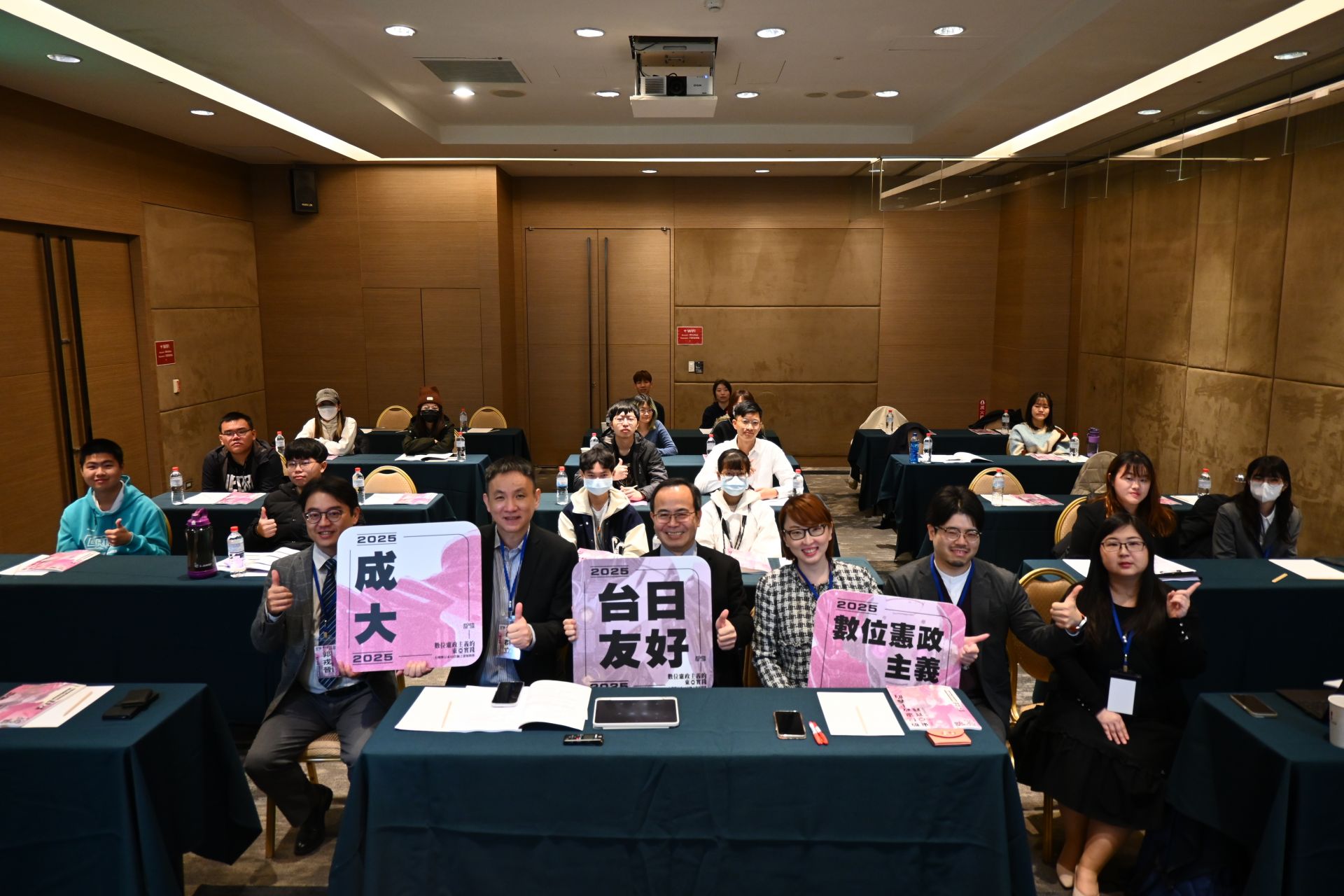SDG16
Professor Minn-Tsong Lin explored Taiwan's resilience and sustainability in "Resilient Nations Amid the Chip Wars."
On November 22, National Cheng Kung University (NCKU) hosted Professor Minn-Tsong Lin, former Vice Chairperson of the National Science and Technology Council and Distinguished Professor of Physics at National Taiwan University (NTU), as a guest speaker for its "NCKU Phoenix Lecture Series." Professor Lin delivered a talk titled "Resilient Nations Amid the Chip Wars," where he examined the development directions of emerging technologies and socio-economic conditions from the perspectives of Taiwan's sustainable development and international geopolitics. He further analyzed the challenges faced by Taiwan's semiconductor industry and emerging technologies against the backdrop of the global "chip wars." Finally, he proposed a cross-disciplinary technological innovation model driven by core values as a potential pathway to achieve Taiwan's sustainable development and resilience.
NCKU Vice President Hong-Zhen Chen welcomed Professor Lin on behalf of President Meng-Ru Shen. Vice President Chen highlighted that although Professor Lin specializes in physics, his expertise extends beyond science to include social and philosophical insights. During his tenure as Vice Chairperson of the National Science and Technology Council, Professor Lin emphasized foundational research funding, established key research equipment with a nationwide and cross-university perspective, and planned technology policies to address climate change and geopolitics. His forward-looking vision promoted interdisciplinary development to benefit the nation and its people.
In his lecture, titled "New Thinking: Global Risks and National Resilience," Professor Lin began with an accessible discussion of the prominent topic of "chip wars," elaborating on the interplay among the semiconductor industry, geopolitics, and values. He addressed the relationships among industries/economies, technology, society, and democracy, ultimately proposing a value-driven and value-sharing innovation model.
Professor Lin explained that Taiwan's semiconductor industry's strong competitiveness arises from a combination of factors, including industrial clusters, government and societal support, prioritized resource allocation, external environmental costs, comprehensive STEM talent participation, a disciplined work culture, and professional ethics. However, he noted that these strengths are approaching their limits under Taiwan's current conditions.
He emphasized the core concepts underlying the "chip wars," revolving around geopolitics, economic/industrial factors, technology, and a nation or society's core values and development. Citing past cases of industries dependent on China being forced to make political concessions, he contrasted this with Taiwan's competitive semiconductor industry, where economic autonomy safeguards political independence.
Professor Lin highlighted challenges faced by Taiwan’s science parks, including industrial restructuring, building locally autonomous supply chains to mitigate risks, and achieving environmental sustainability. While Taiwan's R&D expenditure as a percentage of GDP is relatively high, the share allocated to basic research is low, as is the proportion of basic research conducted by enterprises. Taiwan, despite being a patent powerhouse, remains a minor player in technology exports. Internal issues in Taiwan's innovation economy include a focus on contract manufacturing, a scale-driven industrial structure, horizontal technology adoption, neglect of basic research and independent innovation, and a lack of core values.
He stressed that today's global technological development must align with societal needs, driven by core values such as green energy, net-zero carbon emissions, digital, technological, and economic equity, gender and racial equality, inclusive technology, just transition, and democratic governance. Using Denmark’s wind energy development as an example, Professor Lin illustrated how sustainable value-driven and cross-disciplinary collaboration can guide technological advancement. Denmark's early focus on wind energy was rooted in societal needs and values rather than industrial orientation.
Professor Lin advocated for leveraging Taiwan’s unique ecological, maritime, and industrial characteristics to address local challenges and transition to the global stage. Taiwan's unique attributes include ecological diversity (biodiversity, environmental, and geographical diversity), marine characteristics (Kuroshio Current, monsoon belts, coral triangle zone), natural disaster risks (earthquakes, typhoons, floods/droughts, landslides), and industrial strengths (mass production and resource intensity).
He concluded by proposing an "integrated technological strategy and mindset," underscoring the need for a foundation in basic research. Value-driven technological development should address societal demands, net-zero carbon emissions, and sustainable technology challenges. Technology, he argued, should become a key element of Taiwan’s democratic defense and social resilience, covering critical national technologies, industrial impacts of geopolitical shifts, adaptive technologies, and cybersecurity governance.
Drawing from the Nordic model of green economy development, Professor Lin remarked that the region's success is rooted in a steadfast commitment to core values while pragmatically addressing challenges to find actionable solutions. He emphasized that humanistic and social values are the divine forces driving technological and scientific advancements.
Professor Minn-Tsong Lin holds a Ph.D. in Physics from the University of Halle, Germany. His previous roles include Vice Chairperson of the National Science and Technology Council, Deputy Minister of the Ministry of Science and Technology, and Director General of the Department of Natural Sciences and Sustainable Development. His research interests span nanomagnetism, spintronics, 2D/quantum materials, synchrotron radiation applications, science and technology studies (STS), science policy, and interdisciplinary sustainable development policy.
NCKU Vice President Hong-Zhen Chen welcomed Professor Lin on behalf of President Meng-Ru Shen. Vice President Chen highlighted that although Professor Lin specializes in physics, his expertise extends beyond science to include social and philosophical insights. During his tenure as Vice Chairperson of the National Science and Technology Council, Professor Lin emphasized foundational research funding, established key research equipment with a nationwide and cross-university perspective, and planned technology policies to address climate change and geopolitics. His forward-looking vision promoted interdisciplinary development to benefit the nation and its people.
In his lecture, titled "New Thinking: Global Risks and National Resilience," Professor Lin began with an accessible discussion of the prominent topic of "chip wars," elaborating on the interplay among the semiconductor industry, geopolitics, and values. He addressed the relationships among industries/economies, technology, society, and democracy, ultimately proposing a value-driven and value-sharing innovation model.
Professor Lin explained that Taiwan's semiconductor industry's strong competitiveness arises from a combination of factors, including industrial clusters, government and societal support, prioritized resource allocation, external environmental costs, comprehensive STEM talent participation, a disciplined work culture, and professional ethics. However, he noted that these strengths are approaching their limits under Taiwan's current conditions.
He emphasized the core concepts underlying the "chip wars," revolving around geopolitics, economic/industrial factors, technology, and a nation or society's core values and development. Citing past cases of industries dependent on China being forced to make political concessions, he contrasted this with Taiwan's competitive semiconductor industry, where economic autonomy safeguards political independence.
Professor Lin highlighted challenges faced by Taiwan’s science parks, including industrial restructuring, building locally autonomous supply chains to mitigate risks, and achieving environmental sustainability. While Taiwan's R&D expenditure as a percentage of GDP is relatively high, the share allocated to basic research is low, as is the proportion of basic research conducted by enterprises. Taiwan, despite being a patent powerhouse, remains a minor player in technology exports. Internal issues in Taiwan's innovation economy include a focus on contract manufacturing, a scale-driven industrial structure, horizontal technology adoption, neglect of basic research and independent innovation, and a lack of core values.
He stressed that today's global technological development must align with societal needs, driven by core values such as green energy, net-zero carbon emissions, digital, technological, and economic equity, gender and racial equality, inclusive technology, just transition, and democratic governance. Using Denmark’s wind energy development as an example, Professor Lin illustrated how sustainable value-driven and cross-disciplinary collaboration can guide technological advancement. Denmark's early focus on wind energy was rooted in societal needs and values rather than industrial orientation.
Professor Lin advocated for leveraging Taiwan’s unique ecological, maritime, and industrial characteristics to address local challenges and transition to the global stage. Taiwan's unique attributes include ecological diversity (biodiversity, environmental, and geographical diversity), marine characteristics (Kuroshio Current, monsoon belts, coral triangle zone), natural disaster risks (earthquakes, typhoons, floods/droughts, landslides), and industrial strengths (mass production and resource intensity).
He concluded by proposing an "integrated technological strategy and mindset," underscoring the need for a foundation in basic research. Value-driven technological development should address societal demands, net-zero carbon emissions, and sustainable technology challenges. Technology, he argued, should become a key element of Taiwan’s democratic defense and social resilience, covering critical national technologies, industrial impacts of geopolitical shifts, adaptive technologies, and cybersecurity governance.
Drawing from the Nordic model of green economy development, Professor Lin remarked that the region's success is rooted in a steadfast commitment to core values while pragmatically addressing challenges to find actionable solutions. He emphasized that humanistic and social values are the divine forces driving technological and scientific advancements.
Professor Minn-Tsong Lin holds a Ph.D. in Physics from the University of Halle, Germany. His previous roles include Vice Chairperson of the National Science and Technology Council, Deputy Minister of the Ministry of Science and Technology, and Director General of the Department of Natural Sciences and Sustainable Development. His research interests span nanomagnetism, spintronics, 2D/quantum materials, synchrotron radiation applications, science and technology studies (STS), science policy, and interdisciplinary sustainable development policy.
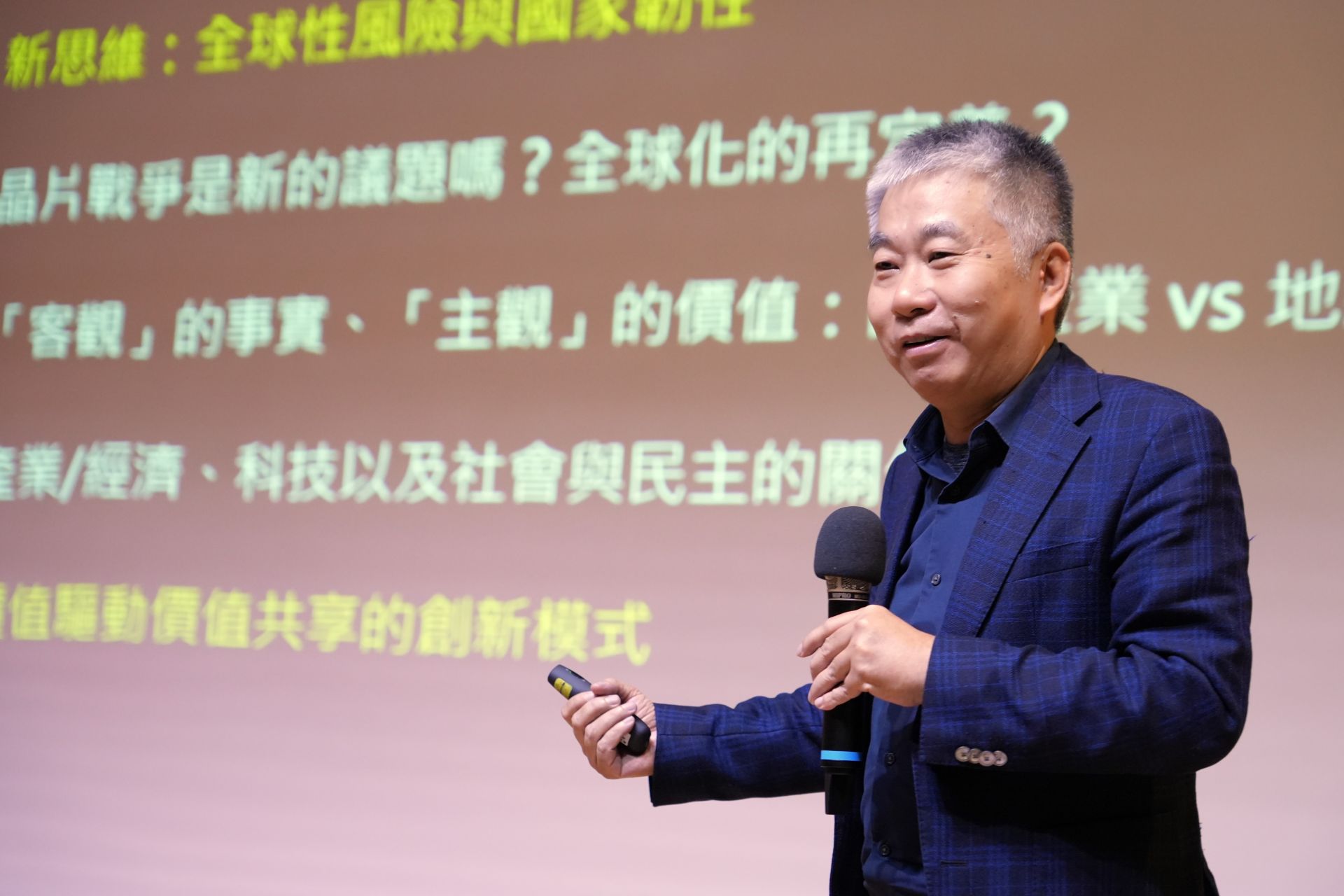
Professor Minn-Tsong Lin, former Vice Chairperson of the National Science and Technology Council and Distinguished Professor at the Department of Physics, National Taiwan University, has been invited as a speaker for the "NCKU Phoenix Lecture Series."

NCKU Vice President Hong-Zhen Chen (left) presents a commemorative NCKU wine to NTU Distinguished Professor Minn-Tsong Lin.
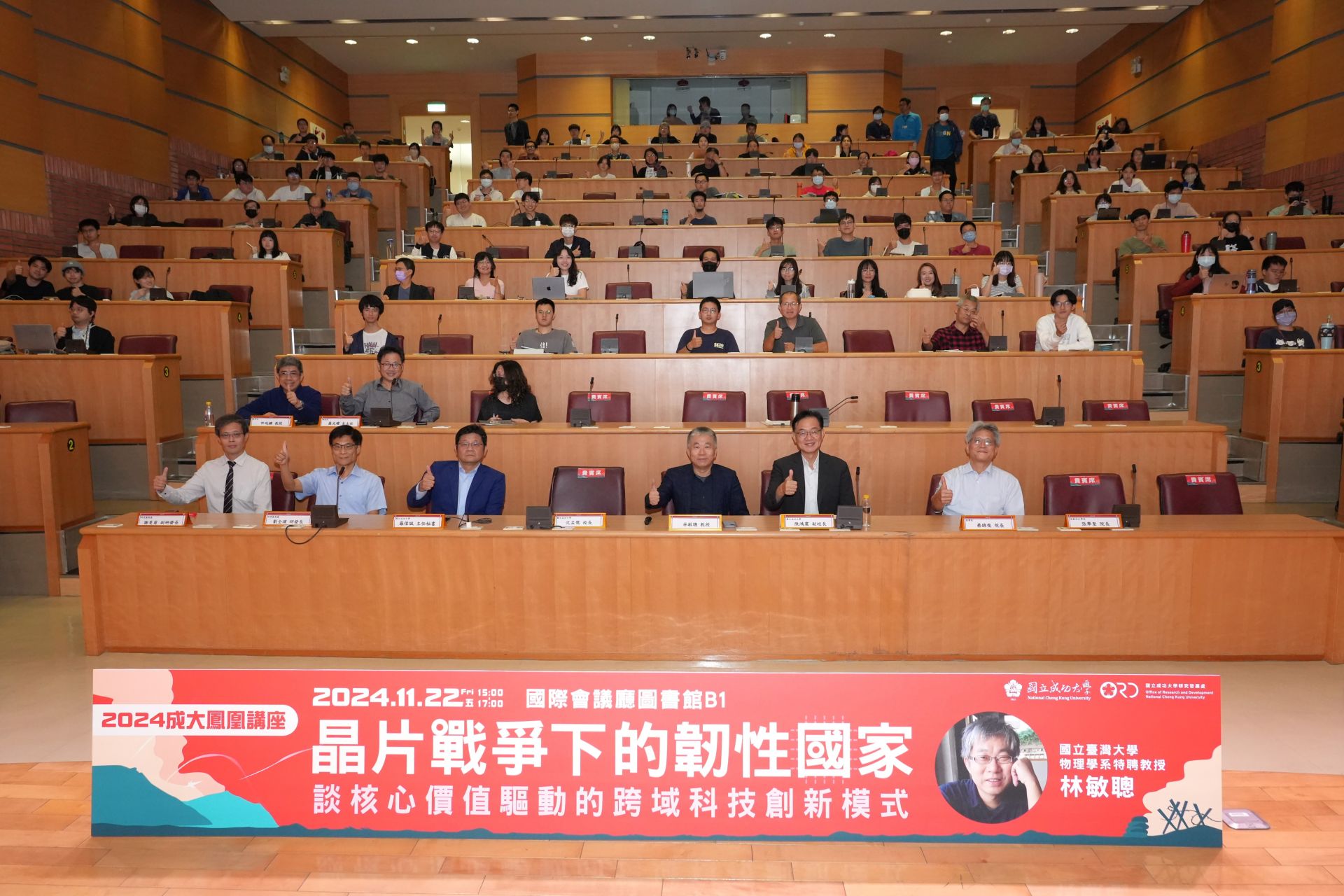
A group photo was taken with the attendees before the lecture.

The audience actively engaged in responses after the lecture concluded.
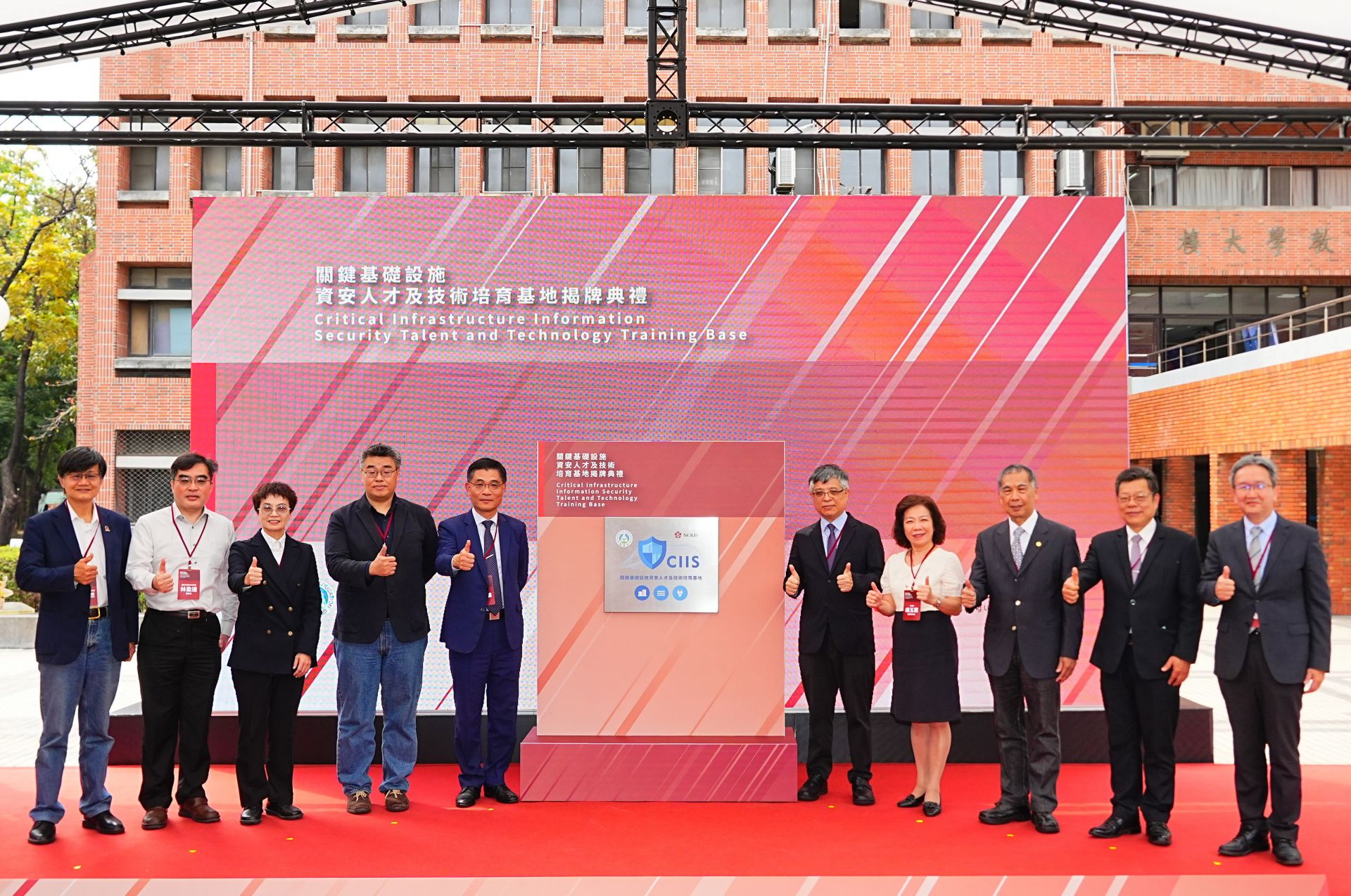
SDG16NCKU Cybersecurity Center Unveiled to Enhance Taiwan's Critical Infrastructure Cybersecurity Capability.
View more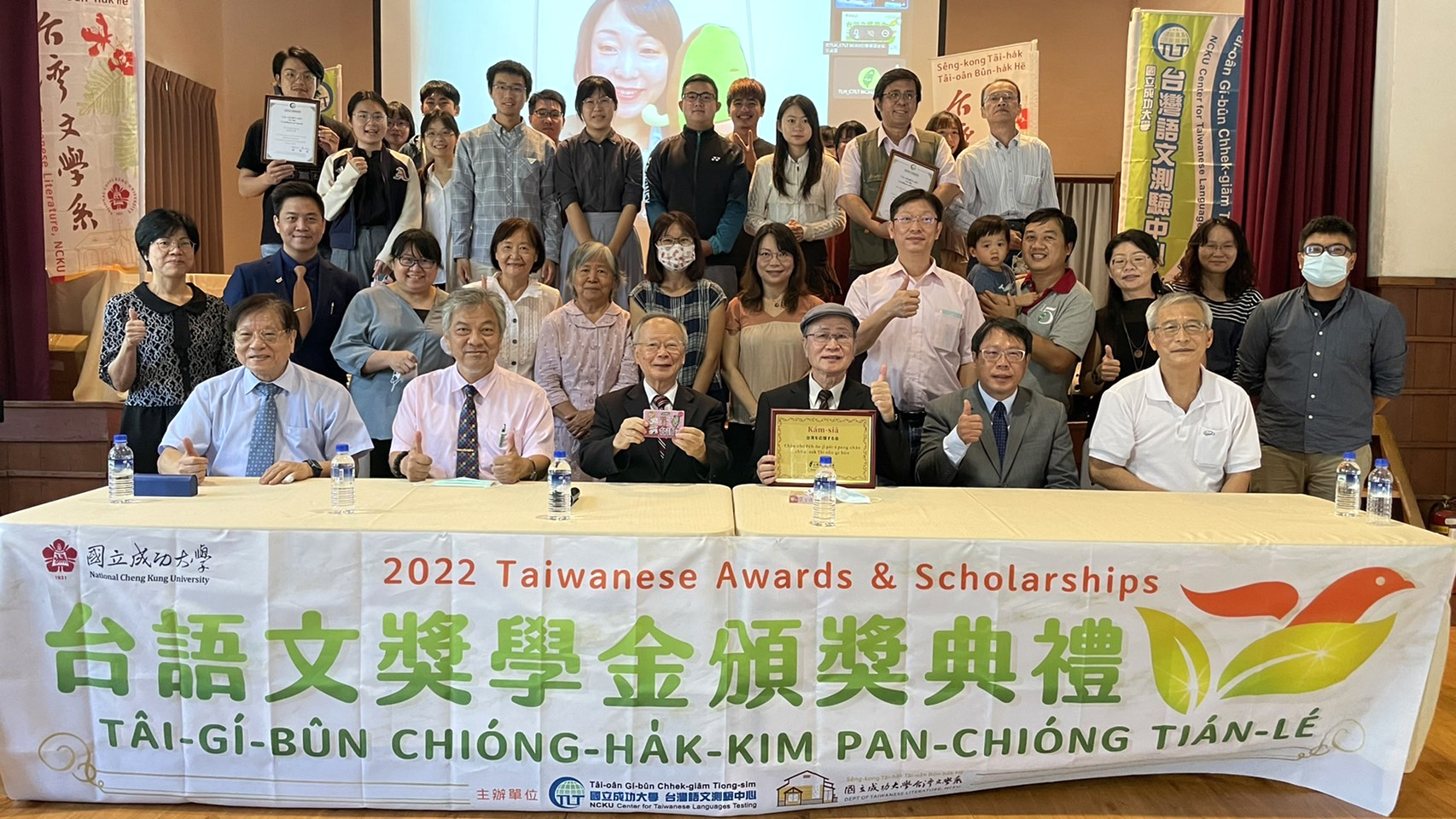
SDG16National Cheng Kung University's Million Dollar Award for the Preservation of Taiwanese Language and Culture
View more